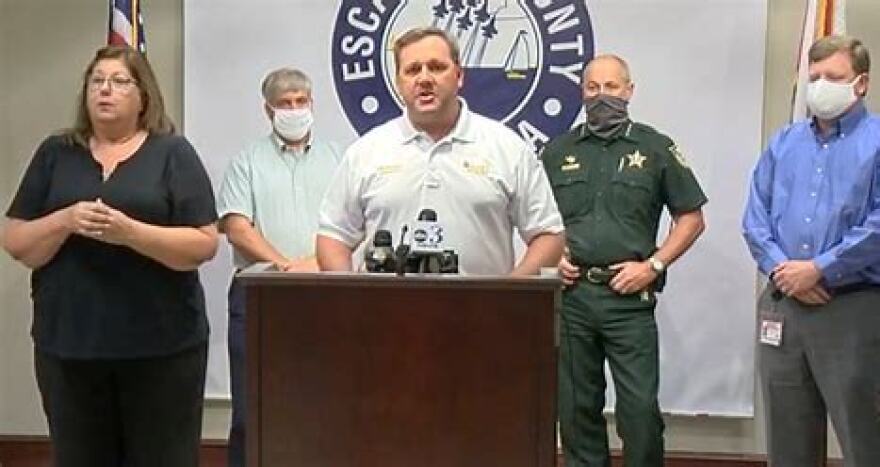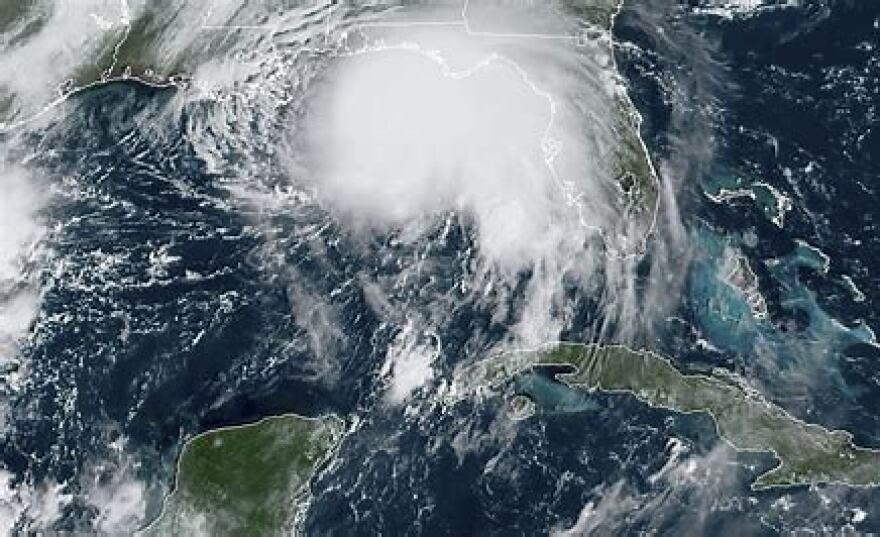It’s time to begin thinking about Hurricane Preparedness in Florida, and officials in Escambia County are urging residents to join them in getting ready for the 2021 season, which kicks off June 1.
Much of the legwork involves lessons learned from Hurricane Sally, which hit near Pensacola in mid-September. Sally, you remember, was heading toward Louisiana, and then veered back to the Florida Panhandle.
“We have our plans in place, and we implemented our plans. Sally was unique in a sense that, it didn’t have steering currents; and nobody knew where it was going to make impact or how it was going to make impact,” said Eric Gilmore, the county’s Emergency Manager.
“This year, we’re going to play the ‘What If?’ game a little closer; we got snake bit [and] I don’t want that to happen to us again,” Gilmore said. “We had resources in place, we had things stood up that was appropriate. But I still felt like we could have done a much better job if we’d had true steering currents and known where the storm was going to make impact and what category.”
One of the long-time staples of hurricane prep – the table exercise – is set for the first part of June instead of late May – because of vaccinations in the COVID-19 pandemic.
“We were waiting on that because [Department of Health] and the hospitals have done such a job; we’re gearing back toward and prep,” said Gilmore. “We’ve been prepping the entire time alone, to be honest with you, but we would like to do just a quick four-hour exercise with our partners and just put everything on the table and let them know what’s going on.”

Getting ready for hurricane season is a true team effort between government and its people. Gilmore says communities can only be as resilient as their residents and how prepared they are. Start with the saying “The first 72 hours are on you in having adequate supplies, and then go beyond that – because, he says, resources may not be available until after that time frame.
“During Hurricane Sally the Bay Bridge went out; during Ivan we had the I-10 Bridge go out, [and] those are our major corridors,” Gilmore said. “So getting resources in can be hampered sometimes. When we say ‘the first 72 are on you,’ we ask that you just be absolutely resilient – because the better prepared you are, the faster we can recover – together.”
There are three steps to be taken by residents, says Gilmore, to make sure they and their property are best prepared for any tropical storm or hurricane that comes our way – know your home, know your zone, and know your plan.
“Is your home safe enough to stay in? Is it resilient enough to withstand a hurricane [and] are you far enough out of the storm surge area?” asked Gilmore. “Know your zone – are you in a storm surge area? Make sure you’re far enough away from the water and the potential storm surge, and then know your plan. Are you going to evacuate? Are you going to stay, or are you going to get to a shelter?
If you decide to stay home, make sure your generator, if you have one, is in good shape; check your supplies, including one gallon of water per person per day, and flashlights, batteries and radios. Gilmore says you can get all of that during the sales tax holiday on hurricane supplies, from May 28 to June 3. But he adds don’t feel like you have to buy everything at once.
“Take a week, or every other week, or every payday and put $20 aside and buy a couple of items here and there,” Gilmore advises. “It will get you along. Just having that prep and that plan will make you that much more successful if we do – and when we do – have a storm.”
Early hurricane forecasts, including the one from Colorado State University, predict above average activity for the 2021 season. But Escambia County Emergency chief Eric Gilmore has this reminder.
“Regardless of above-normal, below-normal, normal – it just takes one; it just takes one,” Gilmore repeated. “So don’t read into the Colorado State — this many storms, this many major — it takes one and we can get one at any time during the season. So just be prepared for a storm.”
Once again, hurricane season runs from June 1-Nov. 30 each year. More information on what to do before, during and after a storm is available online at bereadyescambia.com.

